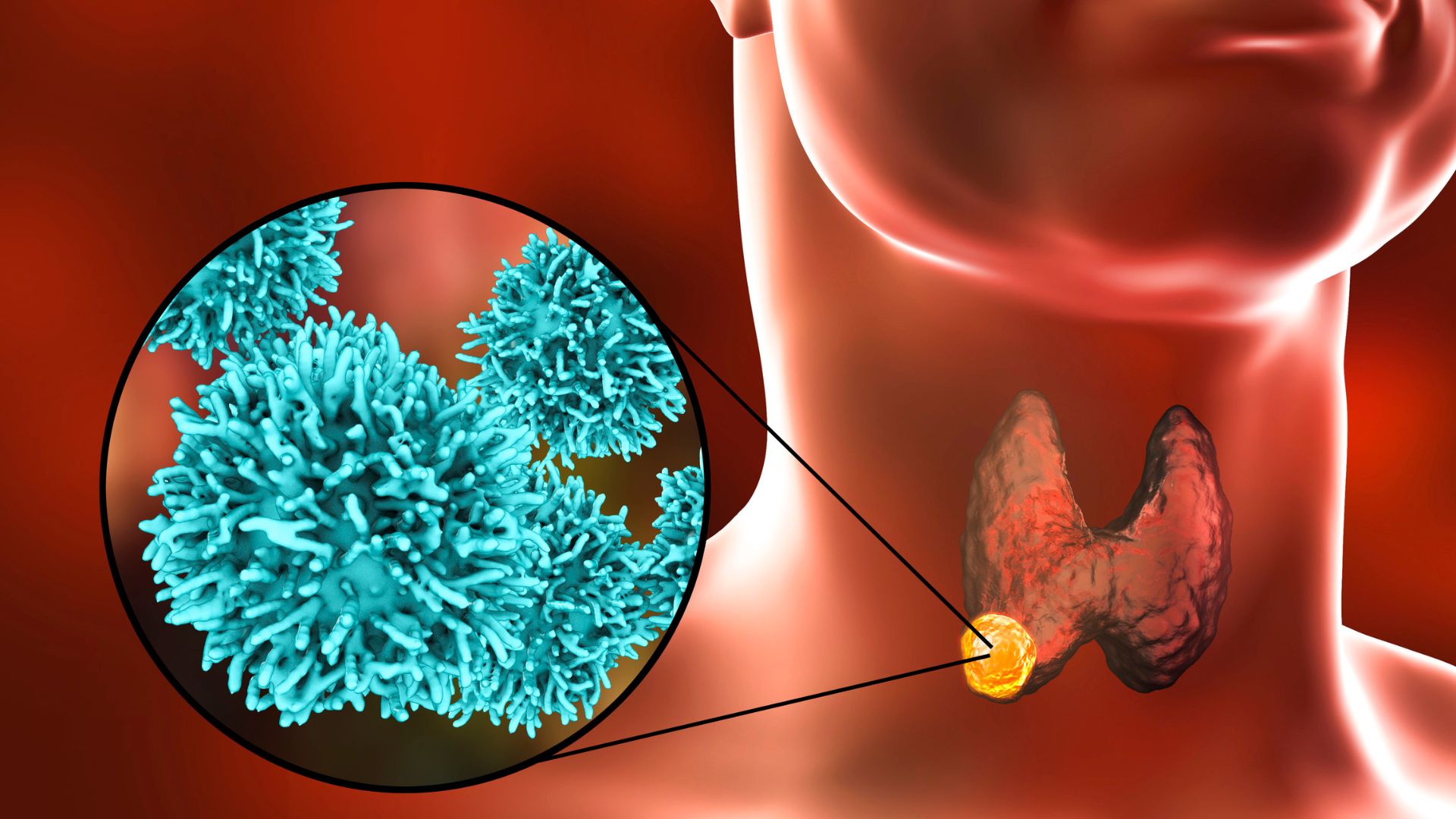Insights from a Thyroid Cancer Specialist in Lucknow
Don’t Ignore That Neck Lump — It Could Be More Than Just a Swelling
Thyroid cancer is one of the fastest-growing cancers across the globe — and alarmingly, it’s affecting more young women than ever before. The good news? When caught early, thyroid cancer is among the most treatable and curable cancers. But the biggest challenge in India remains awareness.
Many people ignore a painless neck lump for months, sometimes even years, dismissing it as a simple goiter or throat swelling. In reality, this could be a silent cancer that’s progressing quietly. The rise in ultrasound scans and fine-needle aspiration tests (FNAC) has helped improve detection rates, but many cases still slip through due to delays in evaluation.
📢 “Not every thyroid nodule is cancer — but the ones that are need quick action.”
✅ If you have a neck swelling or persistent voice change, consult a thyroid cancer specialist in Lucknow today.
What Is Thyroid Cancer and Why Does It Happen?
The thyroid is a small, butterfly-shaped gland in your neck that plays a huge role in regulating your metabolism, energy, and hormone balance. When cells in this gland begin to grow abnormally and uncontrollably, it results in thyroid cancer.
While the exact cause isn’t always known, several risk factors are known to increase the chances of thyroid cancer. Women are significantly more affected — possibly due to estrogen’s role in stimulating thyroid cells. A history of radiation exposure, especially during childhood, increases risk substantially. Family history, especially involving medullary thyroid cancer, often points to a genetic condition involving the RET mutation.
Imbalances in iodine intake, whether too low or too high, can also influence thyroid health. Additionally, benign thyroid nodules — if left unchecked — may slowly evolve into malignancy over time.
📢 “Radiation in childhood is the silent trigger for thyroid cancer decades later.”
✅ If you’ve had radiation to the head or neck as a child, get a thyroid check-up done without delay.
Recognizing the Symptoms: What to Watch For
The scary part? Most thyroid cancers are completely painless. They’re often discovered incidentally during health check-ups or imaging for other reasons.
Here are warning signs you should never overlook:
- A painless swelling or lump in the front of the neck
- A change in voice (hoarseness) without a cold or sore throat
- Difficulty swallowing or a feeling of pressure in the throat
- Persistent cough without infection
- Enlarged neck lymph nodes
- Rapid growth of an existing thyroid lump
It’s important to understand that many thyroid nodules are benign — but only a FNAC biopsy can confirm this. If a lump is growing, it needs expert evaluation.
📢 “It’s not just a goiter if it’s growing fast.”
✅ A thyroid ultrasound and biopsy can give you peace of mind — or catch a cancer early.
Types of Thyroid Cancer: What’s Common and What’s Not
There are several different types of thyroid cancer, each with unique behavior and outcomes.
- Papillary carcinoma is the most common type (about 80%) and tends to grow slowly. It often spreads to lymph nodes but has an excellent prognosis with proper treatment.
- Follicular carcinoma accounts for 10–15% of cases and may spread to distant organs like the lungs and bones through the bloodstream.
- Medullary thyroid carcinoma arises from C-cells and can be inherited. It is linked to RET gene mutations and needs genetic screening for the patient and family.
- Anaplastic thyroid cancer is rare but very aggressive, often diagnosed at an advanced stage.
- Thyroid lymphoma is another rare variant, usually arising in patients with long-standing Hashimoto’s thyroiditis.
The majority of patients are diagnosed with Differentiated Thyroid Cancers (DTC) — which include papillary and follicular types — and have an excellent cure rate.
How Is Thyroid Cancer Staged?
Thyroid cancer staging depends on the size of the tumor, spread to lymph nodes, distant metastasis, and patient’s age.
- Stage I–II: Tumor confined to the thyroid or local lymph nodes
- Stage III: Larger tumor or spread to nearby structures
- Stage IV: Spread to distant organs such as the lungs, bones, liver, or brain
The earlier the stage, the better the outcome — especially for DTCs.
Treatment: Personalized and Powerful
The treatment plan depends on the type and stage of thyroid cancer. Your thyroid cancer specialist in Lucknow will tailor a strategy that offers the best outcome while preserving quality of life.
1. Papillary and Follicular Thyroid Cancer (DTC)
- Surgery is the first step.
- Total thyroidectomy is recommended for tumors larger than 1 cm or those that are multifocal.
- Hemithyroidectomy may be sufficient for small, low-risk tumors.
- Lymph node dissection is done if there’s evidence of spread.
- Radioactive Iodine (RAI) Therapy is used after surgery to destroy any remaining thyroid cells, especially in intermediate or high-risk patients. This requires temporary thyroid hormone withdrawal or stimulation with recombinant TSH.
- Thyroid Hormone Suppression Therapy is essential. Patients are given levothyroxine to keep TSH levels low, reducing the risk of recurrence.
2. Medullary Thyroid Cancer
- Surgery remains the main treatment.
- RAI therapy is not effective in this type.
- Genetic testing for RET mutations is crucial, as it may indicate a familial cancer syndrome.
- Advanced cases may require targeted therapies like vandetanib or cabozantinib.
3. Anaplastic Thyroid Cancer
This is a highly aggressive cancer with limited surgical options. Most patients are treated with chemotherapy and radiation for symptom control. Immunotherapy trials with drugs like pembrolizumab are ongoing and offer some hope.
📢 “Even aggressive thyroid cancers have hope with modern medicine.”
✅ Ask your specialist in Lucknow about advanced options like targeted therapy and immunotherapy.
Monitoring and Follow-Up: Staying One Step Ahead
Long-term monitoring is crucial to detect recurrence early — often years after initial treatment.
- TSH and Thyroglobulin levels are checked every 6–12 months in patients with DTC.
- Neck ultrasound is done annually to spot small recurrences.
- A whole-body scan may be needed after RAI therapy.
- In medullary thyroid cancer, Calcitonin and CEA levels are important tumor markers.
With proper surveillance, most recurrences can be detected and treated before symptoms appear.
Can You Prevent Thyroid Cancer?
Complete prevention may not always be possible, but you can reduce your risk through awareness and early action:
- Avoid unnecessary radiation to the head and neck, especially in childhood
- Use iodized salt to maintain healthy iodine levels
- Follow up regularly if you have thyroid nodules or goiter
- Screen family members if medullary thyroid cancer or RET mutation is present
Final Thoughts: Curable, Controllable, and Not To Be Ignored
Thyroid cancer, when diagnosed early, is one of the most treatable cancers. It may be silent, but it speaks through a swelling, a voice change, or a persistent cough. If you listen to your body — and act in time — the outcomes are overwhelmingly positive.
👉 Don’t ignore that neck lump
👉 Don’t delay an ultrasound or biopsy
👉 Don’t skip follow-up after treatment
📢 “A butterfly-shaped gland shouldn’t clip your wings.”
✅ Visit a thyroid cancer specialist in Lucknow — early action leads to lifelong control.
Book Your Thyroid Cancer Consultation Now
If you or a loved one has a thyroid lump, abnormal scan, or confirmed thyroid cancer, don’t delay.
Consult the leading thyroid cancer specialist in Lucknow for expert evaluation, surgery, and radioactive iodine therapy.












